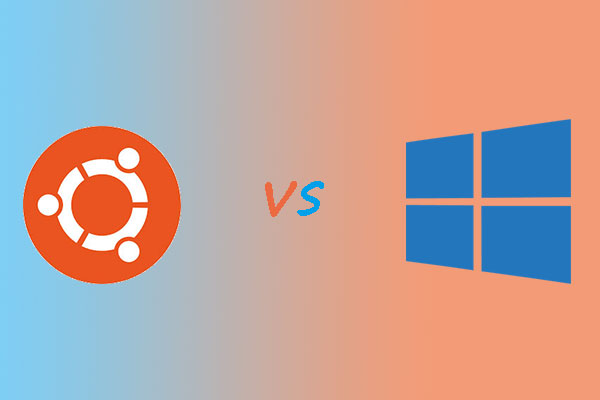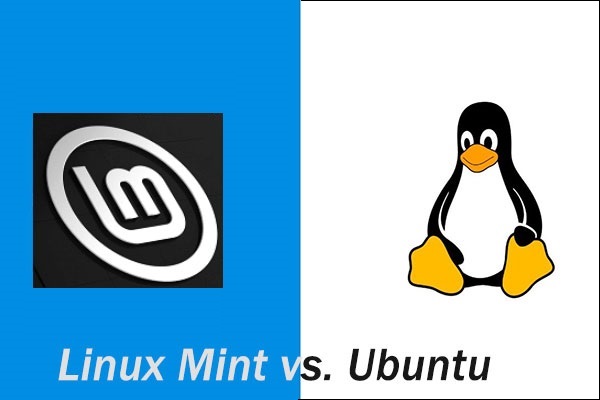Some people may want to know the differences between CentOS and Ubuntu. If you don't know how to choose between the two Linux distros, you can read this post, in which MiniTool Partition Wizard explains CentOS vs Ubuntu to you.
CentOS vs Ubuntu: Overview
CentOS (Community Enterprise Operating System) is an open-source and enterprise-class Linux distribution supported by the community and first released back in 2004. Many refer to it as a replica of the Red Hat Enterprise Linux (RHEL), which is considered to be the most widely used in the corporate IT world.
CentOS is compatible with its upstream source — RHEL. Because of the close link to RHEL, CentOS has quite a few corporate-level security updates thus making it a safe choice for every user.
Ubuntu is also an open-source Linux distribution first released in 2004, but it is based on Debian and supported by a company called Canonical. It offers 3 versions: Desktop, Server, and Core: (for the internet of things devices and robots).
Ubuntu is laden with a rich set of package groups and features that are capable of meeting the requirements of any project. And it offers frequent updates to remove any identified bugs. Ubuntu is a hot favorite for personal and professional use.
CentOS vs Ubuntu: Main Differences
Here is a comparison table of Ubuntu vs CentOS:
| Features | Ubuntu | CentOS |
| System Core | Based on Debian | Based on Redhat |
| Update Cycle | Often | Infrequent |
| Security | Good (but requires additional configuration) | Strong |
| Support Considerations | Excellent documentation and support community | Good documentation. Small but active user community. |
| Platform Focal Point | Geared more towards the desktop user | Geared towards the server market and preferred by larger corporations |
| Manageability | Moderate | Challenging |
| Package Management | apt-get, aptitude | YUM |
| Cloud Interface | OpenStack | OpenStack, OpenNebula, CloudStack |
| Virtualization | KVM, Xen | Native KVM Support |
| Ease of Use | Moderate | Difficult |
| Stability | Good | High |
| Hosting Market Share | 13.5% (data from W3Techs in 17 Sept, 2020) | 5.5% (data from W3Techs in 17 Sept, 2020) |
After seeing the above table, let’s talk about what influence the above differences may result in.
1. Package Management
Since CentOS and Ubuntu are based on different operating systems, their package managements are also different. CentOS is based on RHEL and uses the yum package manager to install .rpm packages, while Ubuntu Server is based on Debian and uses apt or apt-get (for older distributions) package manager to install software from .deb packages..
2. Software
Ubuntu repository lists tens of thousands of individual software packages available for installation, while CentOS only lists a few thousand. In terms of the number of packages, Ubuntu would clearly win.
However, the problem is that many graphical server tools like cPanel, Webmin, and DIrectAdmin are written solely for Red-Hat-based systems. Although there are comparable tools in Ubuntu, this will still cause troubles to developers.
3. Ease of Use
In this aspect, Ubuntu is better. Ubuntu server provides a user-friendly, intuitive, and easy-to-manage GUI and a handy search function. Running utilities from the command-line is straightforward. Besides, Ubuntu has a huge community. You can easily find tutorials on the internet.
As for CentOS, it is typically for more advanced users. It has a steep learning curve and there are very few tutorials available on the internet. If you are a novice, CentOS is not recommended.
4. Stability, Security, and Updates
Ubuntu is developed and maintained by a company and supported by both the company and the strong Ubuntu community. Therefore, if your system encounters problems, you can easily find solutions.
In addition, Ubuntu is updated regularly. This means that you can enjoy new technologies in this system, but this also means more bugs or configuration conflicts.
Unlike Ubuntu, CentOS developer team is very small and they are almost volunteers. Therefore, CentOS is updated infrequently. To access third-party software updates, you may need to manually install third-party software or updates if they haven’t made it into the repository.
On the other hand, due to the extensive testing on each component before release, CentOS is very reliable and stable.
5. Why Ubuntu’s Market Share Is Bigger than CentOS
As of Sept, 2020, according to data published by W3Techs, Ubuntu vs CentOS hosting market share is shown like the following picture:

Many users may thing CentOS is better than Ubuntu in aspect of sever. Why Ubuntu’s market share is bigger than CentOS? Possible reasons are as follows:
- Many newbies start with Ubuntu, so when making OS decisions, instinctive intimacy will make them choose Ubuntu server.
- Whether it is CentOS or Red Hat, the new .rpm package is too difficult to find. Even if it is found, it is time-consuming and labor-intensive to solve the dependency problem caused by the new .rpm package.
- The CentOS community building is not as good as Ubuntu.
- Ubuntu is released very frequently and is catching up with the trend. Therefore, using Ubuntu server can make it easier to deploy and apply new concepts.

![How to Install Linux (Ubuntu) on Windows 10 [Ultimate Guide]](https://images.minitool.com/partitionwizard.com/images/uploads/2020/02/install-linux-on-windows-10-thumbnail.png)


User Comments :